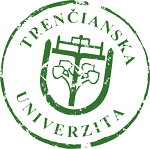INSTITUTE OF BIOMATERIALS, FRIEDRICH-ALEXANDER-UNIVERSITY ERLANGEN-NÜRNBERG
Friedrich-Alexander-University Erlangen-Nürnberg embodies and delivers world class education and research in the broad disciplines in Social and Natural Sciences, Economics, Engineering and Medicine, establishing a leading place among German universities in the German Research Foundation (DFG) rankings and attracting a large number of Humboldt scholars. The University of Erlangen-Nuremberg is part of a large international network and maintains close ties with 500 partner universities in 62 countries. Researchers from the University work closely with leading universities around the world in more than 130 research collaborations. The University of Erlangen- Nuremberg has a long history of hosting visiting academics, and in particular visiting research fellows from around the world. Every year more and more Humboldt scholars and prize-winning researchers choose this Northern Bavarian University as their research base. The reputation of the University prompt extensive international collaborations and the Department holds currently collaborative projects with several prestigious institutions in USA, Canada, Europe, as well as several links to Asia, notably India, China, Singapore, Malaysia and Japan and Latin America, e.g. Argentina, Brazil, Mexico and Peru. The University, acknowledging the importance of biomedical materials research, made a significant investment by establishing the Institute of Biomaterials, which started teaching and research activities on 1st October 2009 with the appointment of Prof. AR Boccaccini as Chair of Biomaterials. The Institute of Biomaterials is one of the seven Institutes forming the Department of Materials Science and Engineering of the University and works in a highly interdisciplinary environment, collaborating with researchers in the Faculties of Natural Sciences, Medicine and Dentistry. Research and teaching in materials science and engineering in the Department are exceptionally broad; both in terms of the materials studied – metals, ceramics, polymers, glasses, composites, semiconductors, nanomaterials and biomaterials, and in terms of the disciplines embraced – including physics, chemistry, medicine and engineering.
The research activities of the Institute of Biomaterials :
The Institute of Biomaterials provides international leadership in the biomaterials field, including the development of bioactive materials for tissue engineering and regenerative medicine, new compositions of dental materials and a range of novel coatings for biomedical applications. Research in biomaterials is carried out by a broad multidisciplinary team, as well as in partnership with a number of researchers and academics with expertise in cell biology, biochemistry, biotechnology and medical sciences in Erlangen, Germany and worldwide. Research at the Institute of Biomaterials in Erlangen is carried out in a very interdisciplinary environment and in close collaboration with several academic institutes and researchers worldwide, including Imperial College London, UK, McGill University, Canada, Polytechnic of Torino, Italy, Institute of Materials Science and Univ. Complutense of Madrid, Spain, University of Westminster, UK, INSA Lyon (France), Nagoya Institute of Technology, Japan, Istanbul Technical University, Turkey, University of Newcastle, Australia, East China University of Science and Technology, China, among others. Funding for research in the Biomaterials area has been successfully obtained from different research councils, including the German Science Foundation (DFG), the European Commission (FP7, Horizon 2020) and the German Academic Exchange Service (DAAD) as well as industry.
The Institute of Biomaterials has major research activity in the broad area of glasses, ceramics, polymer/glass composites and nanomaterials for biomedical and functional applications. In March 2016 the Institute of Biomaterials added to its existing infrastructure a new state-of-the-art building in Erlangen, where a fully equipped in-vitro (acellular and cellular) cell biology laboratory is housed. The Institute of Biomaterials, in addition to the Department’s infrastructure, is equipped with modern facilities and infrastructure for cutting edge biomedical research focusing on biomaterials processing. The international projects and collaborations worldwide including among others: Imperial College London (UK), Politecnico di Torino, University of Padova and University of Modena and Reggio-Associated with document Ref. Ares(2017)278766 – 18/01/2017739566 FunGlass –Part B – 56Emilia (Italy), INSA Lyon (France), Nagoya Institute of Technology (Japan), ETH (Zurich,Switzerland), Josef Stefan Institute (Slovenia), Czech Academy of Sciences (Czech Republic), Warsaw Univ. of Technology (Poland), West Pomeranian University of Technology, Szczecin (Poland), ITC Castellon (Spain), Instituto de Ceramica y Vidrio (Madrid, Spain), Univ. Complutense of Madrid and Univ. of Seville (Spain), Technical University of Vienna (Austria), McGill University (Canada), Univ. Nacional Cuyo and University of Buenos Aires (Argentina), Federal University of San Carlos (Brazil), University of California San Diego (USA), University of Newcastle, Australia, East China University of Science and Technology, China, University of Belgrade (Serbia). Further collaborative arrangements are implemented with University of Minho (Portugal), University of Oslo (Norway). ARB was also participant in a previous EU-Latin America ALFA programme funded by the EU, with institutions of Europe (e.g. Tech. University of Vienna, University of Saarland, University of Alicante) and Latin American participants from Argentina, Brazil, Venezuela and Chile. The Institute of Biomaterials was partner in several EU projects in FP-VII, e.g. GLACERCO (ITN) (http://www.glacerco.eu/), and BIOBONE (ITN) (http://www.bioboneitn.eu/ ) and is currently partner in project ReBioStent (http://rebiostent.eu/ ). The Institute also hosts two Marie Curie fellows (EU FP7 Project: OSTENT, and EU Horizon 2020 Marie Skłodowska-Curie fellowship: BIOsSpun). In addition the Institute is partner in several Horizon 2020 projects, including 3 Marie Skłodowska-Curie Innovative Training Networks actions (MSCA-ITNs): CoACH (http://www.coach-etn.eu/), HyMedPoly (https://hymedpoly.eu/), and NanoHeal (http://www.nanoheal.uio.no/) as well as MOZART (http://www.mozartproject.eu/) project (NMP-06-2015 – Novel nanomatrices and nanocapsules).
- Institute of Biomaterials, Friedrich-Alexander-University Erlangen-Nürnberg
Cauerstraße 6
91058 Erlangen
Germany- Prof. Aldo Boccaccini,, aldo.boccaccini@ww.uni-erlangen.de







